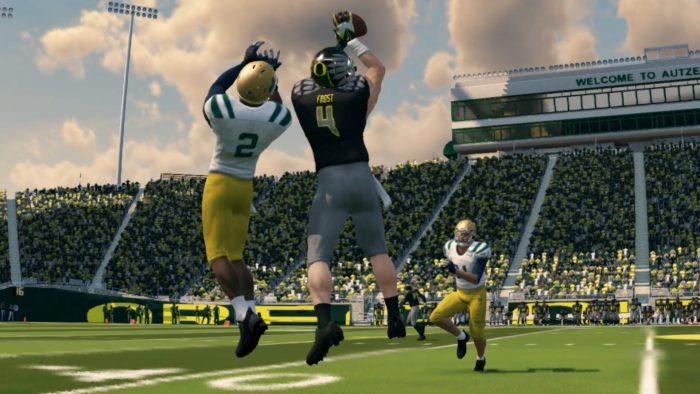
By: Ryan Moreland (@ryanmoreland)
The Big XII got interesting with the Texas loss to Colorado. There are three teams tied at the top and four teams vying for an automatic bid. Before we dig into the nitty gritty, let’s look at the tiebreakers.
| Order | Tiebreaker |
| 1 | Conference Record |
| 2 | Head-to-Head |
| 3 | Record vs common conference opponents |
| 4 | Point differential vs common conference opponents |
| 5 | Record vs common overall opponents |
| 6 | Point differential vs common overall opponents |
| 7 | Overall record |
| 8 | Overall point differential |
Since every conference team will eventually play each other, most ties will end with a head-to-head. However, there can be scenarios that take us much deeper (just look at the Big XII last season).
Now, for how the playoffs work. The top three teams in each conference will get an automatic bid into the playoffs. After that has been settled, then the last 4 teams will be voted in by a league-wide vote. After the field is set, seeding will begin. This season, the top 8 teams will be seeded and then they will get to draft their opening-round opponents.
I cannot predict which way the vote will go, so for these articles, I will be focusing on the automatic bids.
Also, keep in mind that three-way tiebreakers are broken for the top team and then the two remaining games go back to head-to-head.
Current Standings
| Team | Overall Record | Conference Record | Tiebreaker Reason (if applicable) |
| Texas A&M | 3-4 | 3-1 | Point differential vs common conference opponents (+47) |
| Oklahoma | 5-2 | 3-1 | Point differential vs common conference opponents (+41) |
| Texas | 5-2 | 3-1 | Point differential vs common conference opponents (-18) |
| Colorado | 3-4 | 2-2 | |
| LSU | 2-5 | 1-3 | |
| West Virginia | 1-6 | 0-4 |
Right now we must break the tie at the top with the point differential within the conference since Texas A&M and Texas haven’t played each other yet. This won’t matter now, since a three-way tie will be impossible.
Texas will win the conference and clinch the playoffs. They can also clinch the playoffs (but not win the conference) if Colorado loses.
Oklahoma can win the conference with a Texas loss AND a win over LSU. The only way for them to miss the playoffs is to lock into a three-way tie with Texas and Colorado. We will talk about point differential later.
Texas A&M can win the conference with a win over Texas and a loss by Oklahoma. There is no way for them to miss the playoffs. They have locked up a top-three spot.
Colorado can still get in if they win AND Texas loses AND Oklahoma wins. That would tie them with Texas for third. If Oklahoma lost, they would enter a locked three-way tie. Here are the current in-conference point differentials for each of these four teams.
| Teams | Point Differential vs common conference opponents |
| Texas A&M | +47 |
| Oklahoma | +41 |
| Colorado | +2 |
| Texas | -18 |
Next, we will look at the odds, based on the algorithm that I made last week for these teams to finish in the top three.
| Team | Odds to Win Conference | Odds to Automatic Bid |
| Texas A&M | 5.4% | 100.0% |
| Oklahoma | 39.6% | 98.7% |
| Texas | 55.0% | 68.5% |
| Colorado | 0% | 30.1% |
Whoever doesn’t make the conference has pretty good odds to make the playoffs by the vote-in. The only way it doesn’t happen is if Colorado loses and stays at three wins. They still have a good chance to make it even with a loss, but it will be close.
LSU could also get to three wins if they beat Oklahoma, which would put them in the conversation for the vote-in. It would still likely be an uphill battle, but winning would give them a chance.


